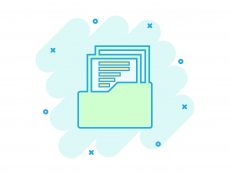
Higher Education
Op-Ed
Higher Education: Using AI to Meet Student Needs
By eLearning Inside
February 04, 2024
This article was written by Shantanu Bose, Ph.D., Chief Academic Officer and Provost at DeVry University.
Higher education is on the cusp of an AI revolution. Artificial intelligence has the potential to fundamentally transform higher education for the better, including how we teach, what we learn, and the skills needed to be successful in a world shaped by AI.
By infusing AI into learning platforms and courses, colleges and universities can make the educational experience more adaptive, personalized, engaging, and impactful for students.
Universities are not moving fast enough.
Yet, many colleges and universities are moving cautiously and slowly towards the promises of AI. A report released this year by Ellucian, a leading higher education technology solutions provider, reveals that despite the recognized benefits of artificial intelligence, its use in higher education is not as widespread as perceived.
The comprehensive survey gathered responses from 1,140 higher education administrators across 768 institutions. Its findings bring to light the unrealized potential of AI in higher education. Despite the gap between the perceived and actual use of AI, over 70% of respondents view AI favorably and about half of them expect the positive effects of AI will span the student experience, from better supporting the student journey to improving student outcomes at their institution.
How is AI changing the employment landscape?
Both students and employers are grappling with their own uncertainties and realizations about AI’s capabilities and its impact on jobs. College graduates are worried about their work readiness and potential to secure jobs due to the rapid emergence of generative AI, while employers acknowledge how the hiring landscape is being changed quickly by the new technology, according to Cengage Group’s 2023 Employability Report. Educators and employers need to do more to prepare today’s workers, the report added.
Higher education has a profound duty to keep up with technological advancements that impact the learning needs and employability of students. DeVry is an institution that has a legacy of combining education and technological innovation, along with a mission to close the opportunity gap in tech-focused careers. Thus, DeVry launched its AI Lab focused on ensuring our programs and curriculum are preparing learners for a world shaped by AI.
AI as a supplement to learning.
As AI continues its rapid advancement, students expect their learning experiences to keep up. Personalized and customized content is the new norm. AI-powered software can empower learning experiences due to its ability to analyze huge amounts of data to gain insights into how students learn best and what teaching methods are most effective.
AI-powered platforms offer adaptive learning, tailored lesson plans and coursework to individual students based on their strengths, weaknesses, and preferred learning styles, while also tracking their progress, engagement, and performance.
Similarly, AI-powered virtual assistants can provide instant answers to many frequently asked questions thus leaving more time for students and faculty to focus on higher value-added interactions and learning. Through its AI Lab, DeVry is experimenting with emerging AI technologies such as Retrieval-Augmented Generative (RAG) conversational AI solutions to enable a personalized learning experience.
The future of AI-assisted education
AI-powered learning systems are beneficial to not only students but also the outcomes that higher education wants to achieve. This is because, as Domoscio notes, “Learners feel valued and motivated when they are placed at the center of their own learning journey.”
As AI continues to evolve, colleges and universities that implement artificial intelligence thoughtfully and responsibly will be poised to deliver learning experiences that are truly tailored to students’ needs. The future of higher education will rely on a harmonious partnership between human insight and AI.
If you liked this article, check out How Technology Can Facilitate Early-Stage Education.
Featured image: Tzido.









No Comments